Didier Grandgeorge, MD
Homeopathic Remedies for the Stages of Life: Infancy, Childhood, and Beyond by DIDIER GRANDGEORGE MD [#GRALIF]
$14.21
Description
Dr. Grandgeorge explains the philosophical significance of each of the successive phases of life, referencing some of the most commonly experienced physical and psychological symptoms and their homeopathic remedies. The connections he makes are enlightening and practical and are illustrated by the fascinating case histories of his patients. Dr. Grandgeorge’s thoughtful observations will prove invaluable to anyone wishing to gain insights into child development and the workings of the human psyche.
A quote from the back cover:
“Didier Grandgeorge, M.D. has a refreshing writing style that clearly and delightfully encapsulates the stages of life from the womb to the tomb. He enlivens the book with short vignettes of life and remedies that are rich in puns, insights, and practical value. Hem displays how homeopaths think and feel about people, making it a great book for everyone.”
Francis Treuherz, M.A., RSHom, FSHom,
Hon. Secretary of the Society of Homeopaths (UK),
and former editor of “The Homeopath”.
Having dedicated most of his working life to the treatment of children, Dr. Didier Grandgeorge is Director of Clinical Training at the Faculty of Medicine in Marseille, France. Dr. Grandgeorge is one of the founders of the Hahnemannian School in Provence, France and is editor of L’Homéopathie Exactement, the school’s ongoing series of research publications, now in four volumes. He lives in Marseille with his wife and three children.
Table of Contents:
Contents
Introduction
The Quest for Perfect Health
All You Need is Love
Symbolism of the Human Body
Homeopathy: Key to the Unconscious
Hahnemann’s Three Miasms
Conception
Heredity
Life in the Womb
Birth and the Oral Stage
The First Three Months
The Sixth Month: Teething
The Crisis of the Ninth Month
Eighteen Months: the Anal Stage and Sycosis
Three to Seven: the Syphilitic Period
Seven to Puberty: the Latency Period
Eleven to Eighteen: Puberty
Adulthood
Thirty-Three: the Crossroads
The Third Age: in Search of Serenity
Society as a Reflection of Man
Death: Gateway to Infinity
Conclusion
Bibliography
Index
FOREWORD by Dana Ullman, MPH:
Homeopathy has its own funny language. Instead of diagnosing a person as having a specific disease, homeopaths usually define the disease the person has based on the medicine that is being prescribed for the sick person. Although this may at first seem a little strange, there is a profound logic to it.
A person is not simply a kidney disease, a colitis, a fibroid, or a cancer. A person is the totality of his or her physical and psychological characteristics and symptoms, and this totality is a dynamic, evolving system. The fact that conventional medicine reduces a person and his/her totality into a specific, limited, and usually localized pathology is quite strange in its own right.
In comparison, homeopaths understand that all disease is SYNDROME, that is, the whole body is influenced by infection and stress, and the whole body is aroused in its efforts to defend and heal itself from this perturbation. The human body is an incredibly complex web of small systems that are interconnected, and when one part of the web is affected, the entire web feels it, even if it is only minimally.
What is also important in understanding homeopathy is that symptoms are not usually evidence of the body’s breakdown but that symptoms are generally evidence of the body’s defensive reaction and effort to defend and heal itself. This perspective that symptoms are an integral part of the body’s immune and defense system is a modern understanding of stress theory and pathology.
Anyone who has ever been to a professional homeopath knows that homeopaths conduct an incredibly detailed interview, undercover a wide variety of common, uncommon, and sometimes strange and unique symptoms that a person has, and then ultimately prescribes a homeopathic medicine for the person and his/her own syndrome of physical and psychological symptoms.
To say that a person has a migraine headache or a peptic ulcer or an anxiety disorder simply does not do justice to describe the various features of the person and the dis-ease he or she is experiencing. Instead, homeopaths describe the disease that the person has either by saying that Joe Smith has an “”Arsenicum album”” disease (Arsenicum album is the Latin name for a common homeopathic medicine, arsenic. By the way, homeopathic medicines are in Latin because homeopaths want and need to be as precise as possible in describing the plant, mineral, or animal species that is the source of the medicine.).
By calling the disease by the name of the medicine gives the homeopath and fellow homeopaths (as well as educated consumers) a better, more detailed description of the complex syndrome of symptoms that the person is experiencing.
At first blush, calling someone a “”Mercurius”” person may sound strange, but if you know something about this medicine, this name provides a considerably more rich and sophisticated body of information than to say that this person has a peptic ulcer.
APPRECIATING AND USING THIS BOOK
This book describes many homeopathic medicines and the syndrome of symptoms that each represents. What is unique about this book is that it is one of the first to describe the medicines in the light of developmental stages of a person’s life. Understanding normal developmental stages is actually quite important in selecting a medicine for a person because a homeopath generally places more emphasis of a person’s symptom if that symptom is unusual or unique. Such unusual or unique symptoms help the homeopath select a medicine that is more individualized to the sick person.
This book will help guide you to homeopathic medicines that are commonly indicated for dealing with the specific developmental problems that emerge at different stages in a person’s life. Please know that we all go through life in our own pace, and various events, experiences, and illnesses can speed up, slow down, and even reverse or revert one to another stage. Because of this, don?t read the information in each chapter as only useful for people in a specific age group. Each chapter can provide instructive and useful information about homeopathic medicines to people at any age in their life.
Now that you’ve learned something about how to speak “”homeopathic,”” you may want to begin teaching others the wisdom of this language. Although those of us who speak homeopathic are presently in a minority, this is changing very rapidly. And in any case, this language simply makes sense.
Dana Ullman, MPH
Author of Everybody’s Guide to Homeopathic Medicines (with Stephen Cummings, MD), Homeopathy A-Z, Essential Homeopathy, The Consumer’s Guide to Homeopathy, and Homeopathic Medicines for Children and Infants ”

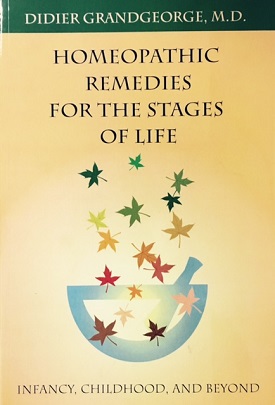
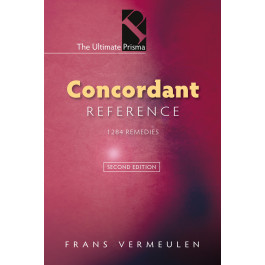
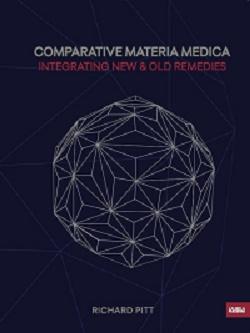
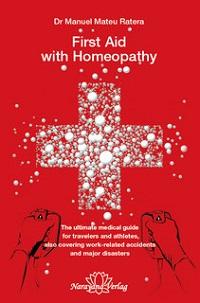
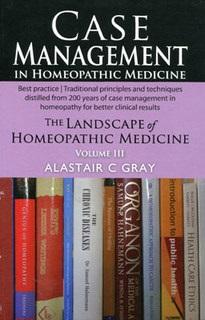
Reviews
There are no reviews yet.